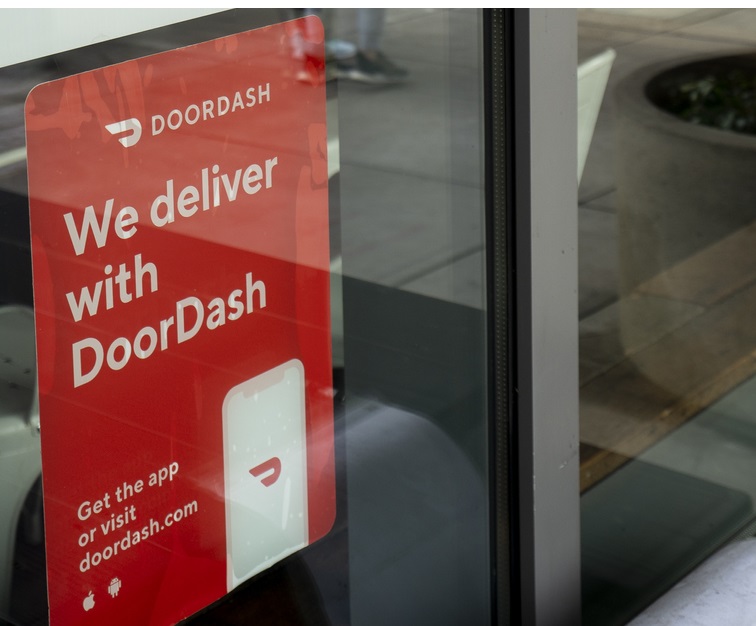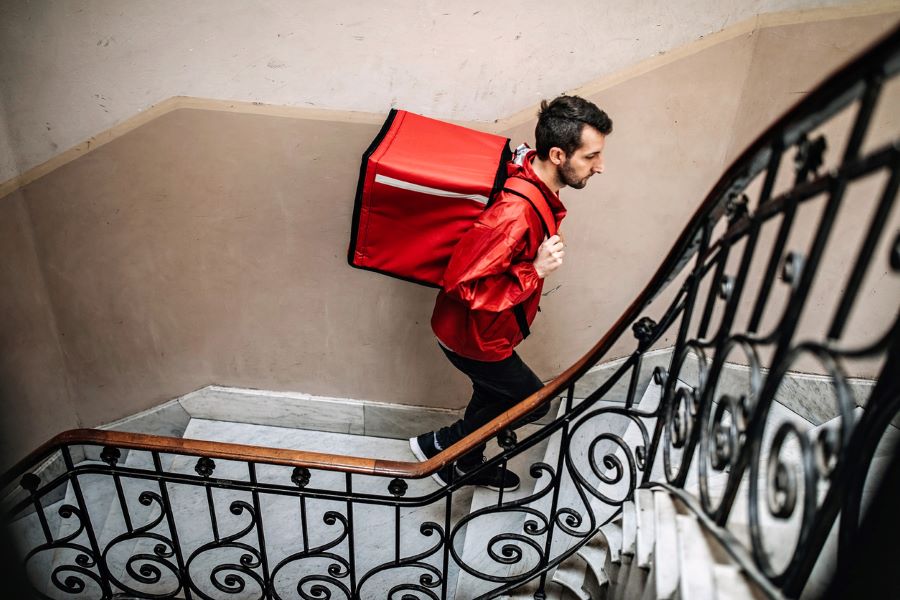United Way, DoorDash Food Program Makes 400,000th Delivery!
This blog post was written by Elsa Young, United Way of King County Home Food Delivery Coordinator.
Every Monday afternoon, a DoorDash driver arrives at Farhad’s apartment in Tukwila and delivers a box of fresh groceries—eggs, fruits, vegetables and even halal meat—all at no cost. Farhad and his family immigrated to the United States from Afghanistan just a few months ago and often have trouble accessing healthy foods. As a college student and father of four children under the age of ten, Farhad struggles to fit going to the grocery store into both his family’s budget and schedule. A friend helped the family sign up for United Way of King County’s food bank home delivery program, and now, fresh, healthy and culturally relevant groceries arrive at their doorstep on a weekly basis.
Farhad’s story, while powerful, is not unique. Thousands of households in King County are experiencing similar struggles— trying to put food on the table with limited financial resources, while also balancing the demands of childcare, education and work. United Way’s grocery home delivery program seeks to ease this balancing act for families by building flexibility and convenience into the existing emergency food system.
Beginning as a pandemic-response program in July of 2020, when in-person food assistance was largely unavailable, United Way’s grocery delivery program saw its signup list grow by the thousands in just a few short weeks. Through a partnership with DoorDash and dozens of King County food banks, the program now delivers groceries to over 5,000 households on a weekly basis. Last week, United Way of King County’s DoorDash partnership completed its 400,000th delivery—a major milestone that sets the program apart as the largest food bank delivery service in the nation.
Two years into the pandemic, United Way is learning that the need for grocery deliveries extends far beyond the COVID-19 response. Even as in-person food bank services re-open and people begin to feel comfortable visiting public spaces, the demand for food bank deliveries persists. An analysis of the United Way-DoorDash partnership, completed in December 2021 by the University of Washington’s Master of Public Health program, shows that grocery deliveries meet several of the community’s needs that are not addressed by the traditional emergency food system.
The 400,000th delivery is a major milestone that sets the United Way/DoorDash program apart as the largest food bank delivery service in the nation.
For many community members, visiting their local food bank in person is not an option—often due to disability, childcare needs, lack of transportation or work hours that conflict with food bank hours.
According to the analysis, households participating in the DoorDash delivery program were more likely to have children in the household than those that visit food banks in person. Delivery program participants also have larger households with more children than low-income households in King County as a whole. These trends illustrate the difficulty that parents face when accessing the emergency food system.
“It is hard for my wife to go to the store on the bus with all the kids,” Farhad said. “And I am in school with a job. The food coming to our door has made feeding our kids easier for me and my wife. We appreciate the help as we get settled in our new home.”
The grocery delivery program also plays an important role for low-income seniors and those with disabilities. According to the University of Washington analysis, 38% of program participants report living with a disability and 64% of participating households include seniors—compared to 14% and 28% of low-income households county-wide, respectively.

For example, the United Way grocery delivery program provides food to around 100 seniors, who identify as Asian, living in the International District in partnership with local community advocate Nora Chan, each week. “Most of these seniors are over the age of 75, don’t speak English and live alone,” Nora said. “Most use a cane or walker and carrying groceries is very difficult for them. They cannot go to the food bank themselves.” As participants in the DoorDash delivery program, they receive free boxes of Asian-specific groceries on a regular basis without having to leave home.
The pandemic shed light on the weaknesses of our existing social safety nets and encouraged collaboration and innovation to meet the community’s acute needs more than ever. As an impending recession nears and needs grow, it is imperative that we continue these partnerships to meet our neighbors where they are—both figuratively and literally.
When it comes to emergency food support, we need to invest in sustainable and scalable solutions that address the barriers faced by those most vulnerable in our community.
With nearly half a million deliveries in King County in just two years, it is clear that grocery deliveries meet an ongoing need and must play an integral role in the future of the emergency food system.



Comments